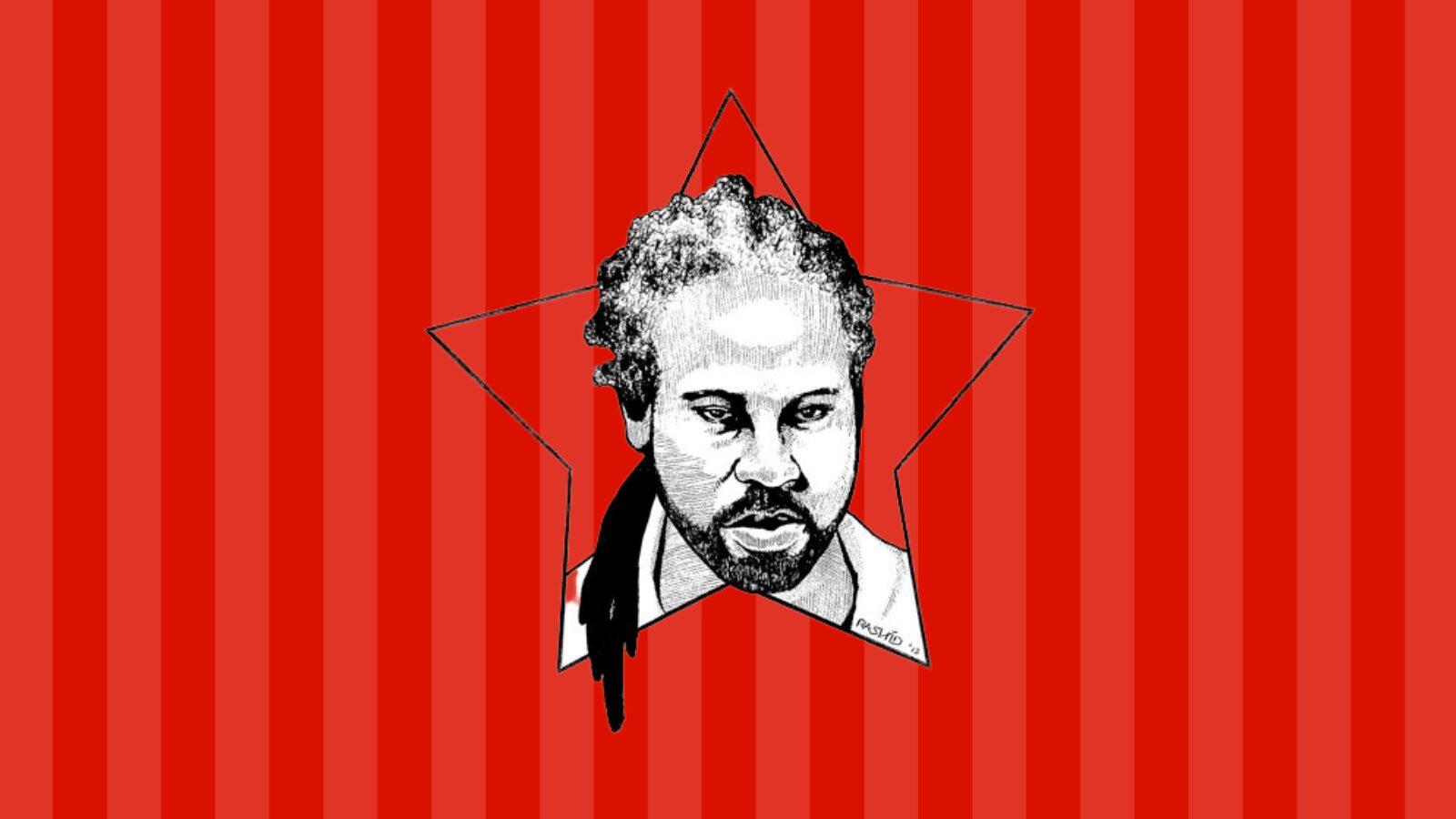Kevin ‘Rashid’ Johnson, a political prisoner and co-founder of the New Afrikan Black Panther Party, is currently being held in solitary confinement in the supermax unit at Wabash Valley Correctional for the crime of defending himself against an attack from another prisoner. Prison staff have taken away all of his personal belongings, including the daily blood pressure medication that has been designated as “keep on person.”
These retaliatory actions are in response to an incident at Pendleton Correctional on August 25, wherein another prisoner gained access to Rashid’s living quarters and attacked him. At this time, Rashid and those close to him believe that the attacker was working in conjunction with prison officials, as he would not have been able to access his living quarters otherwise. After the fight and a visit to the infirmary, Rashid was placed in a disciplinary segregation unit, contrary to the facility’s own policies that reserve such units for prisoners who are serving long-term solitary confinement sentences.
These actions, from the initial attack up to the transfer of Rashid into solitary confinement at Wabash Valley, are the continuation of a years-long attempt by the U.S. prison system to shut down Rashid’s political work.
A history of struggle
Rashid is a political prisoner who was wrongfully convicted in 1990 – those familiar with the racist justice system and its criminalization of Black men will not be surprised to hear of yet another political prisoner locked up this way. After Rashid proved himself willing to stand up to the brutal treatment doled out by correctional officers, they retaliated by placing him in isolation. Rashid has since spent at least 18 years in various levels of segregation.
During his time in solitary confinement, Rashid studied both law and revolutionary theory. He waged a one-man legal campaign against prison abuses, winning several lawsuits before being deemed a “troublemaker” by several judges, who moved to block him from further legal action. During this time Rashid also connected with other revolutionaries and co-founded the New Afrikan Black Panther Party. In addition, Rashid has published many revolutionary writings – these and his artwork, along with more detailed information on his time as a political prisoner can be found at his website.
Since 2012, Rashid has been held in prisons in Texas, Oregon, Florida, Virginia, and now Indiana. The constant transfers are an attempt to stop him from organizing prisoners and speaking out against prison abuses. Nevertheless, Rashid’s work continues. He has organized work and hunger strikes despite the repeated retaliation from prison officials, and prioritizes exposing the brutality of the system to the outside world.
Imperialism abroad, repression at home
According to Shupavu wa Kirima, before transferring him to Wabash Valley, Pendleton Correctional staff attempted to move Rashid to a “pitch black, solitary cell with no light, electrical outlets, or mattress and bedding.” She rightly points out that this is a form of torture practiced widely at Guantanamo Bay, notorious for its vicious torture of inmates and ongoing human rights abuses.
Noteworthy here is that the current warden at Pendleton Correctional, Dennis Reagle, appointed to the position on July 26, was himself a military police officer at Guantanamo Bay for an unknown length of time between 2002, when the camp opened, and 2006, when he left the military. According to Reagle, “his experience in the military is very similar to how a warden should run a prison.”
There is no better way to underscore how intensely prisoners in the U.S. are dehumanized. The state treats foreign “enemy combatants” and American “criminals” with the same level of disdain and brutality. This is not meant to suggest one of these groups deserves such treatment while the other does not, but to emphasize the solidarity we should hold not just with political prisoners in the U.S., but with all victims of U.S. imperialism at home and abroad.
The people’s struggle can free Rashid and end mass incarceration
The prisoner class in the United States is a part of the working class. The struggle for prisoners’ rights is inextricably bound up with the struggles for Black liberation, workers’ rights, women’s and LGBTQ liberation, and the liberation of the working class as a whole. Those willing to struggle with and on behalf of Rashid should reach out to Shupavu wa Kirima at s.wakirima@redvoice.news to receive updates and find out how they can get involved. We urge our supporters to follow IDOC Watch for updates as well.
Calls and emails regarding Rashid’s current abuse can be made to the following
- Wabash Valley Correctional: (812) 398-505
- Warden: Frank Vanihel: fvanihel@idoc.in.gov
- Deputy Warden of Re-entry: Kevin Gilmore:kgilmore@idoc.in.gov
- Deputy Warden of Operations: Frank Littlejohn: flittlejohn@idoc.in.gov
- Legal Liaison: Michael Ellis: MEllis28@idoc.in.gov
Dare to struggle, dare to win!

